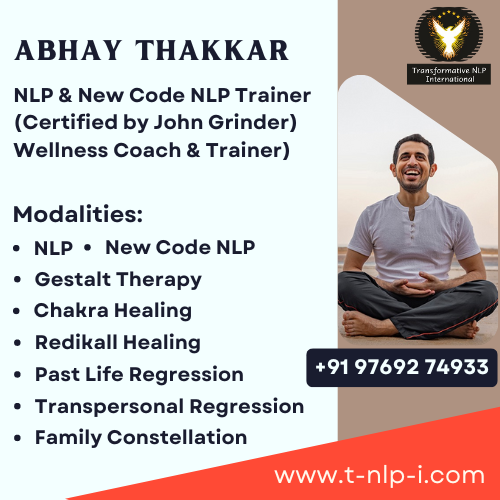wellnessexclusive.com
Your Free Guide to Good Health!

Alternative Therapies
- Alternative Medicine
- Access Bars
- Access Consciousness
- Acupressure
- Acupuncture
- Angel Healing
- Ayurveda
- Bach Flower Remedies
- Breathwork
- Cosmetic Acupuncture
- Crystal Healing
- Cupping Therapy
- Emotional Freedom Technique (EFT)
- Energy Healing
- Energy Medicine
- Ergonomics
- Family Constellation
- Face Reading
- Fengshui
- Geopathic Stress
- Graphology
- Holistic Solutions
- Holy Fire Reiki
- Homeopathy
- Ho'oponopono
- Humkara with Haleem
- Hypnotherapy
- Inner Child Therapy
- Jikiden Reiki
- Kwan Yin
- Lama Fera
- Law of Attraction
- Lecher Antenna
- Manual Therapy
- Meditation
- Melchizedek Method
- Merlin Trinity Healing
- Motivational Counseling
- Mudra Healing
- Munay - Ki Rites
- Naturopathy
- Neuro Linguistic Programming (NLP)
- Panchakarma (Ayurveda)
- Panchkarma Holistic Healing - Mind Control
- Past Life Regression
- Pendulum Dowsing
- Physiotherapy
- Pranic Healing
- Pythagorean Numerology
- Pyramids
- Reiki
- Rudraksh
- Silva Mind Control Method
- Sujok therapy
- Symphony of Possibilities
- Tarot
- Theta Healing
- Twin Flame Healing
- Unani Medicine
- Violet Flame Healing
- Vision Board
- Yoga
- Wicca
- Womb Healing
Diseases & Conditions
- Acne & Pimples
- Allergies
- Arthritis
- Asthma
- Behavioural Disorders
- Dandruff
- Diabetes
- Emotional Problems
- Gallstones
- Gastritis
- Hairloss
- Heart Diseases
- Hormonal Problems
- Hypertension
- Immune Disorders
- Infections
- Infertility
- Jaundice
- Kidney Disorders
- Liver Disorders
- Menstrual Disorders
- Migraine
- Neck & Back Pain
- Obesity
- Osteoporosis
- Peptic Ulcer
- Prevention
- Prostate Problems
- Psoriasis
- Sexual Dysfunctions
- Sinusitis
- Sleep Disorders
- Skin Diseases
- Stress
- Thyroid Disorders
- Ulcerative Colitis
- Urinary Infections
General Wellness
Motivational Counseling in Hyderabad

AROGYAM AVVAAHAN - Ms. Sarlla Bhutoria
Sarlla Bhutodia is expert in multi modalities of healing, She is a strong self driven person with good interpersonal skills and has extra ordinary ability to understand the thought process of the conflict arising situations and facilitating the troubled with spiritual healing....


Mrs. Malathi A Rao
Malathi A Rao, a grand master in Reiki practicing and teaching Reiki for the last decade. She has totally committed herself to the study and understanding of alternate therapies. She is a Past life regression therapist, a Breath work specialist and an expert in Alpha Mind control meditation. Holds regular workshops for teaching Reiki, Energy Medicine, Past Life Regression, Emotional Freedom Technique (EFT) and Alpha Mind Control Meditation. She is also a certified Psychology counselor.

Dr. Anuradha Rao

Dr Anuradha Rao comes with a total of 26 years of experience in the area of Human Resources. She has held several leadership positions in the corporate world with organizations like GE, IBM BTO Operations, and HR Head for Mphasis, Genpact and Deutsche Bank. She is the Founder & Principal Consultant of Aaradhya Learning and Development Solutions Pvt Ltd

Abhay Thakkar

Abhay Thakkar is the first NLP trainer from India to provide New Code NLP as well as NLP training courses in India, certified by co-creator of NLP and co-developers of New Code NLP. He facilitates Internationally Certified New Code NLP/ NLP courses in Mumbai, Delhi, Bangalore and others cities in India and abroad...


Are you trying to quit smoking? Beat an addiction? Stick with a diabetes management regimen? Maybe motivational counseling could help.
Motivational counseling helps people who lack adequate motivation to engage in a process of changing harmful or unhealthy behaviors. It is based on principles of motivational psychology, and is designed to produce rapid, internal motivation to change. Motivational strategies mobilize the client's current and potential resources in the change process.
Why Motivational Counseling?
Treatment often doesn't work because individuals aren't adequately motivated. For example, about 80 percent of smokers lack sufficient motivation to succeed in treatment.
This helps the client work through his ambivalence and discover his own motivation for change. This therapy helps him make a personal commitment to invest in the process. Motivational counseling has been used successfully in the treatment of addictions and eating disorders. More recently it has been used to help patients with chronic illnesses, such as diabetes and asthma, follow their treatment plans.
How it works ?
No absolute goal is imposed through this. Rather, the therapist helps the client describe problems from a non-clinical perspective. With the counseling, the client sets her own goals, although counselors may help clients see the possibilities and potential life improvement as a result of behavioral change. For example, the therapist may provide facts regarding treatment outcomes or health risks in non-judgmental language. The client can then make informed decisions about her health care and will be more likely to invest the time and energy necessary to succeed. Instead of telling the client how to change, this approach builds motivation and elicits ideas from the client as to how change might occur. It focuses explicitly on motivation as the key factor in triggering lasting change. Counselors ask open-ended questions, engage in reflective and empathetic listening, reframe statements, and encourage questions and dialogue.
1.Develop discrepancies.
Through this process the client is able to see "discrepancies" in his life. In other words, he can see conflicts associated with problem behaviors in terms of his personal goals and values. Counselors assist clients in expressing discrepancies in their own words, and encourage them to voice their objections to change.
2.Avoid arguments and direct confrontation.
3.Roll with resistance.
When resistance is met, counselors are trained to "roll with" it rather than confront it directly. By continuing to ask open-ended questions in non-judgmental language, counselors can help clients begin to identify why they resist making seemingly healthy lifestyle changes.
4.Support self-efficacy.
Self-efficacy is an important concept of this counseling. It is the belief that one has the ability to take charge of certain aspects of one's life. Many clients resist change because they lack this belief or lack the knowledge necessary to move forward with treatment.
Client-centered approach
With motivational counseling, interactions with health care providers are collaborative and collegial, not authoritative or confrontational. It empowers patients, identifies barriers to change, encourages reachable goals and, most importantly, increases treatment participation.





